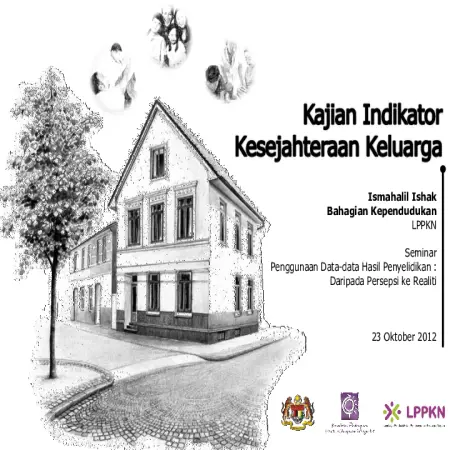| Abstract |
Family well-being is a multi-dimensional concept that covers various aspects of an individual or family's living situation. To date, there is no specific measure that can describe the state of family well -being in Malaysia. Thus, the Ministry of Women, Family and Community Development through the National Population and Family Development Board (LPPKN) and the International Islamic University of Malaysia (IIUM) has implemented a research project called the Study of Family Well -Being Indicators in 2011 to understand more comprehensively about family well -being where at the end of this project, an index will be developed. In total, after going through several formative processes such as literature review, focus group discussion and pilot study, there are 7 domains and 23 indicators have been identified. The development of such domains and indicators of family well-being has focused on subjective well-being where each family is asked to provide an assessment on certain aspects related to their family. The study was conducted on 2,808 households involving a total of 5,616 respondents, consisting of 1,484 fathers, 1,324 mothers and 2,808 adolescents aged between 13 to 24 years. The selection of households in this study has used stratified random sampling method and done by face -to -face interviews. The results show that the Family Well -Being Index is at 75.5 which means that the well -being of Malaysian families is quite high. The Family and Religion/Spirituality domain recorded the highest domain score of 82.5. This was followed by the domain scores Family and Community (78.3), Family Relationships (78.2), Family Safety (73.9), Family Health (73.8), Family and Environment (72.8) and Family Economics (69.0). Based on the results of the IKK study, some suggestions that can be taken into account to improve the level of family well -being are to improve family living standards, increase family resilience, balance work and family demands as well as increase awareness on family safety. |





